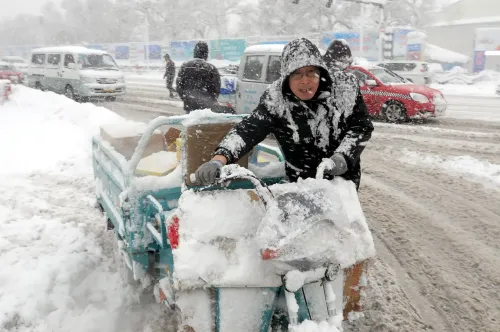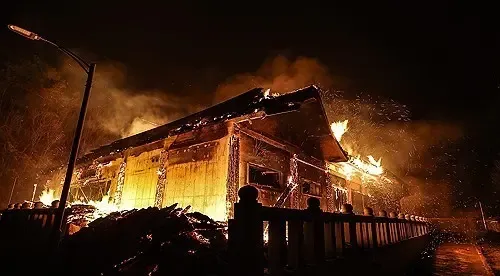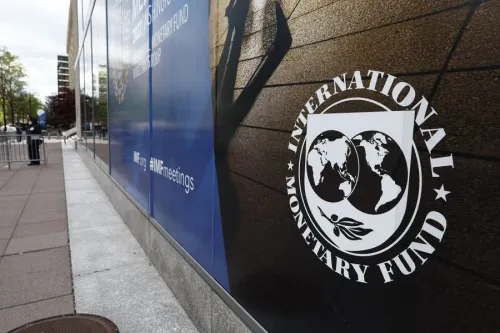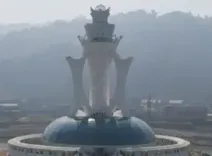Trudeau's Departure: A Disguised Effort to Conceal Years of Leadership Shortcomings
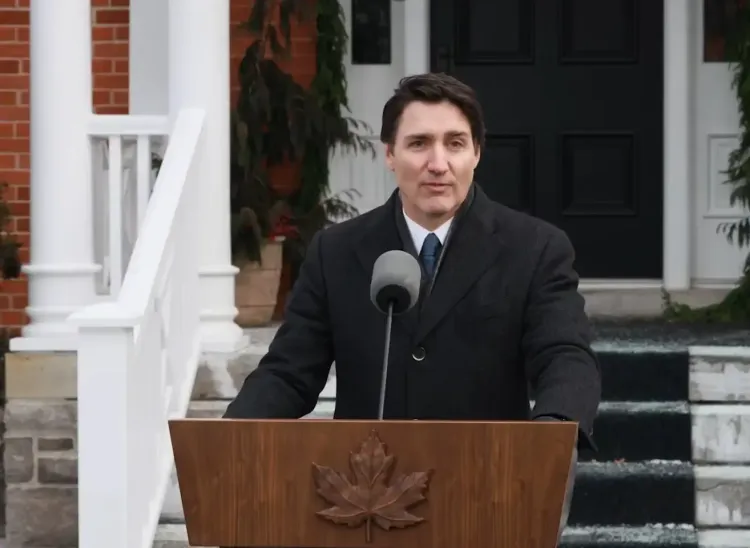
As Canadian Prime Minister Justin Trudeau declared his plan to resign after almost a decade in leadership, the cameras captured a moment of teary-eyed reflection — a brief instance that provided no apologies, no acknowledgment, and no recognition of the severe failures he is abandoning.
His emotional address seemed more like a theatrical exit, crafted to obscure the reality of a legacy that has severely damaged Canada's standing both at home and abroad.
"I cannot lead during the next elections due to internal conflicts," he stated, yet there was no sign of remorse for the turmoil caused by him and his party. His resignation, rather than a gesture of accountability, serves merely as a means to recede into the shadows, as if stepping away could erase the harm inflicted.
However, as Trudeau departs from the leadership role, the real issue is not his exit but the Liberal Party’s blatant unwillingness to confront the devastation they have inflicted.
The glaring issue is evident: the Liberal Party, under Trudeau's ineffective governance, has deteriorated into a mere shadow of its past, more focused on self-preservation than on the welfare of the Canadian populace.
The Liberal Party of Canada has long pretended to be a champion of progressive values. Under Trudeau, it was expected to be a driving force for environmental reform, social equity, and economic justice. Yet, when the opportunity arose to translate those values into reality, the party fell short.
Trudeau's policies, intended to elevate the nation into a new age of prosperity, have instead propelled Canada into a cycle of economic distress, a housing crisis, and escalating crime rates.
Housing affordability, central to Trudeau's pledge to assist Canadians, has turned into a burden for the average citizen. While political elites enjoy insulated luxury, Canadians nationwide are excluded from the housing market, witnessing their aspirations for homeownership fade.
In addition, Trudeau's carbon tax, touted as a cornerstone of his environmental agenda, has imposed rising costs on struggling families for basic necessities. It has contributed little to environmental improvement but has suffocated the very individuals it aimed to assist. To make matters worse, Trudeau’s unrestrained spending — characterized by reckless debt growth — has left the Canadian economy on the verge of collapse.
Yet, despite all this, the Liberal Party has refused to change direction. Trudeau may be leaving, but the party's entrenched dysfunction will persist. The party’s ideological rigidity has rendered it incapable of recognizing the need for genuine, pragmatic solutions. Instead, they have opted to shove their failures beneath the rug, hoping Canadians will forget the havoc wrought.
Trudeau's resignation is not a graceful withdrawal — it is a desperate effort to evade the repercussions of a decade of ineffective governance. His emotional farewell, lacking in sincere apology or regret, reveals much about his political integrity. Rather than face the fallout from his policies, Trudeau has opted to abandon the battlefield, hoping his exit will allow his legacy to quietly fade. However, the reality is that Trudeau’s departure will not erase the damaging trail he leaves behind. His tenure has tarnished Canada’s international standing, a stain that cannot be washed away with a simple resignation speech.
His foreign policy missteps have not only alienated vital allies but have also significantly harmed Canada's reputation on the world stage. Trudeau's inexplicable backing of the Khalistani separatist movement, while simultaneously seeking to maintain diplomatic ties with India, exemplifies political inconsistency. His actions have only exacerbated the divide between Canada and one of its crucial international partners. The strain in relations with India — driven by Trudeau’s obstinacy and failure to act in Canada’s best interests — has been worsened by increasing tensions with Saudi Arabia, a significant player in global oil markets.
Under Trudeau, Canada has become a diplomatic outcast, marked by foreign policy that is more focused on ideological posturing than strategic acumen.
Trudeau's most significant political blunder lies not in international relations but in his coalition with Jagmeet Singh and the NDP. This controversial alliance has enabled Trudeau to implement policies that have brought Canada to the brink — prioritizing the desires of the ideological left over the genuine needs of Canadian citizens. The NDP's endorsement of the carbon tax, among other ill-conceived policies, has left the working class struggling, unable to keep up with rising costs and stagnant wages.
As Trudeau steps down, the Liberal Party finds itself in turmoil. The leadership race to succeed him is less about revitalizing Canada and more about safeguarding the political futures of those who contributed to the chaos.
The contest for leadership resembles nothing more than a power struggle among those who have enabled Trudeau’s detrimental policies for years. Rather than a moment of accountability, the leadership race is merely another attempt to conceal the party’s shortcomings.
The internal rifts within the Liberal Party are evident for all to witness. Instead of concentrating on the pressing issues facing Canadians — housing, crime, inflation — the party’s leadership aspirants are consumed with establishing their own domains. They act as if the Canadian populace will conveniently forget the devastation caused by Trudeau and his party. However, the electorate is not easily misled.
Trudeau's carbon tax, far from being the green solution he promised, has devolved into a political and economic calamity. While Trudeau promoted the tax as a tool to reduce emissions and combat climate change, the reality has been markedly different.
For the majority of Canadians, the carbon tax has translated into nothing but escalated prices at the pump and soaring grocery costs. Yet the Liberal Party, unwilling to concede fault, continues to uphold this policy. Even as families struggle to make ends meet, the Liberals remain steadfastly committed to a tax that does nothing to aid the environment but significantly burdens the finances of ordinary Canadians. The failure of the carbon tax epitomizes the broader policy failures of the Liberal Party.
Under Trudeau, the party has become a caricature of progressive ideals, prioritizing ideological purity over practical solutions.
As Trudeau departs, the lingering question is: will the next Liberal leader persist on the same failed trajectory, or will they possess the fortitude to confront past errors?
Trust in the Liberal Party has eroded to an irreparable extent. Trudeau’s resignation is a last-ditch effort to salvage what remains of the party’s credibility. But the damage is irreversible. The Liberal Party, once viewed as the natural governing authority of Canada, has become a representation of political failure. The party’s refusal to confront its mistakes — whether in housing, crime, immigration, or foreign relations — has estranged a significant portion of the electorate.
Trudeau’s departure will not restore that trust; it will only serve as a reminder of the incompetence and arrogance that have defined the party’s governance.
The resignation of Justin Trudeau signifies the end of an era — but it does not usher in a new one. Canada deserves more than a political establishment that prioritizes its own survival over the needs of the populace. As the Liberal Party retreats into internal conflicts and power struggles, Canada must seek leadership elsewhere — leadership capable of addressing the real challenges facing the nation and restoring public trust in government.
Trudeau may have stepped down, but his legacy will endure long after his exit. The Liberal Party must confront its history if it hopes to progress. Otherwise, it will remain the unaddressed issue, a representation of a political establishment that has failed the Canadian people.
(Rahul Pawa is an international criminal lawyer and Director of Research at the Centre for Integrated and Holistic Studies based in New Delhi. The views expressed in this article are the author's own)


